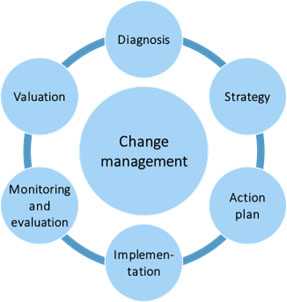CSR Support And Audit
Supporting companies in their CSR approach
Auditing companies on their CSR situation
Context
The need to improve environmental impacts and to respond to social and societal concerns in companies is becoming increasingly pressing. These subjects have never offered before such a wealth of regulations, with, among other things, the obligation today for companies with more than 500 employees and €100 million in turnover to publish a complete CSR report in France (« DPEF » for « Déclaration de Performance Extra-Financière » or non-financial performance statement), approved by an independent third-party organisation and subject to penalties. Tomorrow, companies with a lower threshold (250 employees, €40 million in turnover) will also have the obligation to establish a more complete and complex report (CSRD).
It is also an opportunity for all companies, small and large, to take the subject to heart, to contact all their stakeholders (bankers, associations, suppliers, shareholders, employees, public authorities, trade unions, customers, local residents, NGOs, …), to recover their expectations and prioritise them, to set up a CSR policy, in order to adopt more ethical and sustainable practices in their mode of operation, and thus contribute to the improvement of society and the protection of the environment.
Challenges
The CSR approach is an opportunity to review the entire organisation, and in response to the expectations of stakeholders, to make a transparent commitment to environmental, social and societal impacts and to build strategies that create value in the long term.
The aim is to question processes in order to generate virtuous savings, to imagine new services, to anticipate the environmental, social and societal risks that will affect society, to be ahead of the competition, all in order to attract or retain employees interested in the search of meaning, and in order to win new markets and calls for tenders, by playing on the know-how thus perpetuated and the strengthened image of the company.
Our expertise

1 – Establish the diagnosis
• Determine all the company’s stakeholders
• Gather the expectations of internal and external stakeholders
• Get help to define expectations, from ISO 26000
• Carry out the monitoring and evaluation
• Carry out a materiality matrix to select the issues retained
• Carry out an importance/performance matrix to determine the issues
2 – Define the strategy
Define:
• The vision: what place should the CSR approach occupy in society?
• The areas of commitment: a coherent grouping of priority areas of action
• The objectives: quantitative or qualitative
3 – Define the action plan
Define:
• One or more projects
• Tasks, specifying the means to achieve them
• A person in charge, a timetable, 3 indicators: performance, human and financial
4 – Organise the implementation
• Build the communication plan
5 – Establish the reporting on the 3 environmental, social and societal axes
• Choose the indicators corresponding to the strategic axes
• Assign responsibilities for data collection and analysis
• Define the frequency of information collection to monitor progress
6 – Carry out the valuation
• Integrate CSR reports
• Evaluate through certification and performance audits
